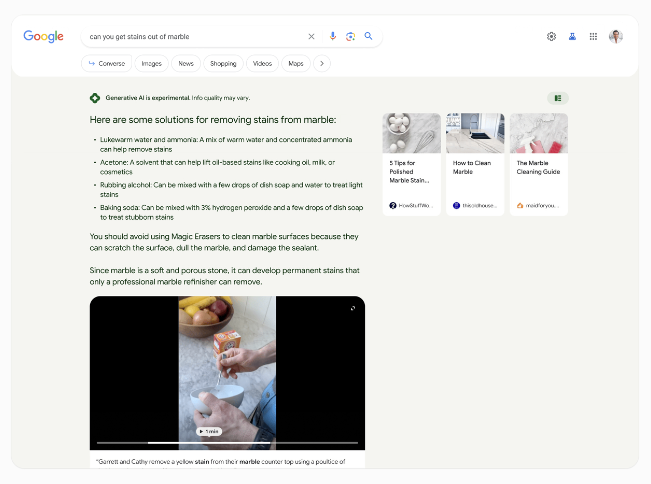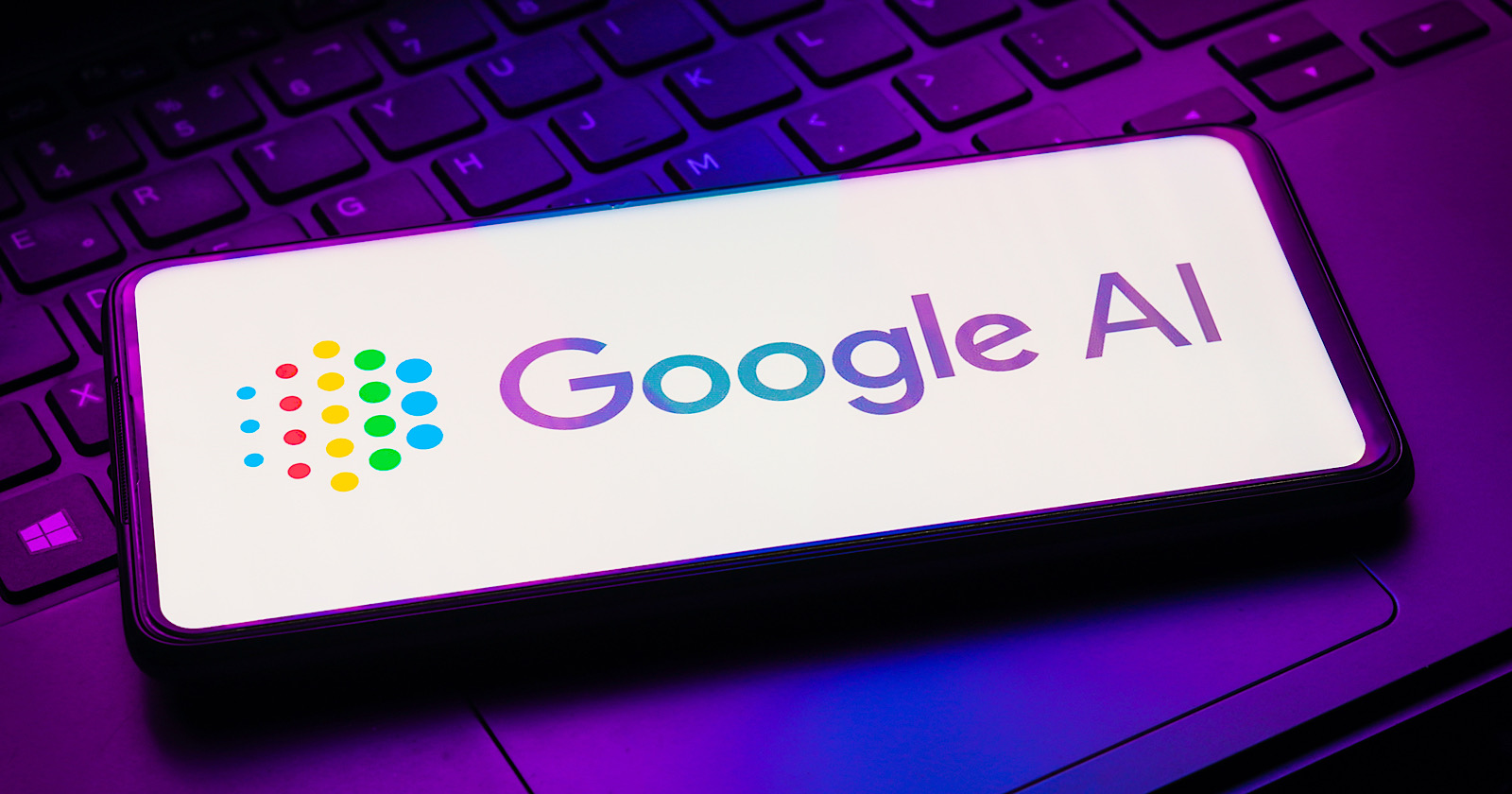Google has unveiled three new capabilities powered by its generative artificial intelligence (AI) that aim to improve the search experience for users.
The new features, announced in a blog post on the company’s website, build on Google’s Search Generative Experience (SGE) introduced this year.
Google’s SGE uses AI to quickly generate short summaries on topics and provide helpful images, videos, and links.
1. Visual Learning Boosted With Images & Videos
 Screenshot from: blog.google/products/search/, August 2023.
Screenshot from: blog.google/products/search/, August 2023.The first update brings more images and now short videos to the AI-generated overviews.
For example, searching for “tiniest birds of prey” surfaces an image of the bird species.
Google says, over the next week, some overviews will include short videos – like a yoga pose demo for a query about yoga, DIY instructions, or product reviews.
2. Speedy AI Overviews For More Efficient Searches
The second update significantly speeds up the generation of AI overviews.
Google claims it has cut the time to produce the summaries in half through improvements to the AI system, with faster response times expected.
3. Enhanced Context With Publication Dates
Finally, Google has added published dates for all linked web pages alongside the AI text.
This gives people more precise information on the pages’ recency, allowing them to judge source currency and credibility.
These announcements come as Google aims to rapidly advance its AI capabilities and integrate them into its products.
Google’s live preview of SGE is part of a multi-year investment in AI technology and utilizes large language models similar to systems like ChatGPT to generate helpful responses.
Google Bets Big On AI – But How Will It Impact Search?
Google’s latest integration of generative AI into its search engine marks a significant milestone but leaves SEO experts questioning the implications for organic rankings.
The capabilities aim to improve the user experience and help people find information faster.
However, the same AI underpinning services like ChatGPT could now compete directly with traditional search results.
This has the potential to disrupt how search engines operate and how users discover content.
Traditionally, Google results are compiled from indexed web pages. Now, AI can synthesize answers on the spot, possibly reducing clicks to organic listings.
Whether this will send less website traffic or function as a ‘gateway’ to encourage more exploration is still being determined. Either way, it’s a tectonic shift.
As Google adds new features to SGE, SEOs must watch closely for organic visibility and traffic changes. The consensus is that AI-driven search requires an adaptable optimization strategy.
It’s a classic case of potential benefits versus risks.
Initial user feedback on the updated search features has been mixed. While some praise the convenience, others find the AI responses could be more straightforward or helpful.
As Google rolls out its capabilities more widely, how AI will reshape online search and discovery remains to be seen.
Source: Google
